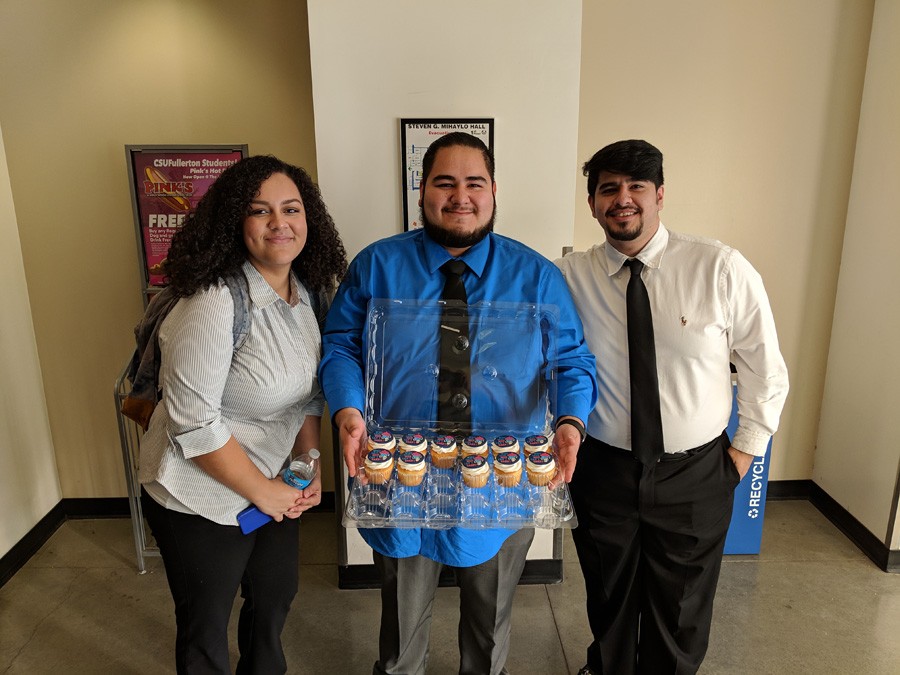At the end of every semester, CSUF Entrepreneurship students have the opportunity to give investor pitches for the startups that they have created and been working on over the course of the semester to our panel of judges. These presentations may only be educational exercises, this is, after all, a school, and if that’s where they end then that is still an excellent outcome because the students have had to work through the process of learning what is involved in actually launching a business. But some of these student-founded startups do actually get launched, as is the case with the team pictured above of Miguel Lemus, the founder of Who Said Men Can’t Bake?
As all of these students have learned, there is a lot that goes into starting a business. And there is a lot that goes into creating a startup that grows into a successful business. Sales, marketing, operations, finance, the list goes on. But what is so inspiring about this process are the innovative concepts that our students develop every semester. We see concepts ranging from bakeries to music therapy nonprofits with a focus on children with autism to niche social networks.

CSUF Startup Pitch Process
Fifteen minutes is not a long time to explain to a group of strangers, particularly ones that are tasked with grading and potentially investing in your concept, why your concept matters but it is an important part of being an entrepreneur. We give students fifteen minutes to give their pitches because that is frequently the amount of time that founders have when pitching investors after the first or second meeting.
Over the course of these fifteen minutes, our students are taught to effectively communicate the following:
- What is the problem that they have identified
- What their solution
for this problem is - Who their customers are
- Marketing
- Operations
- Finance
- Funding
There’s more to it than that, of course, but those are the big topics that are covered. For more information on what makes a great investor pitch I strongly suggest checking out The 12

The Judges
Entrepreneurship does not happen in a vacuum and it is a good idea to seek input from others on your ideas. We do these panels so that our students have the opportunity to hear feedback from people with a wide range of backgrounds. Our judges are entrepreneurs, bankers, investors, marketers, executives, and professionals and experts of all kinds. A brief review of the comments that the students received shows the depth and breadth of the feedback that they receive.
One judge will recommend applying for a Small Business Administration loan while another will critique the team’s distribution plan and another will give a list of recommendations on the kinds of services the company should use to track customer behaviors on their e-commerce site. These kinds of feedback are invaluable to the founders because, while they do certainly receive a lot of feedback from the professors and mentors in the classroom it is great to get fresh feedback from a new group of people as well.
Why this Matters
Being able to effectively communicate your ideas is important in every walk of life but I think that is especially so as an entrepreneur. Entrepreneurs need to inspire people to buy their products, invest in their business, become their partners, and work for them. Entrepreneurs are leaders and a big part of leadership is communicating ideas.
The feedback that the students receive from giving these presentations can prompt them to go back to the drawing board and rethink some things that are critical to the success of their startups. Other times, students will receive feedback that bolsters their resolve and gives them that extra push they needed that only outside confirmation can give.
Yes, these presentations are graded and every judge was tasked to give out a grade to every presentation that they sat in on. These presentations can also be launchpads to successful startups and lifelong business relationships that will help to turn these students’ concepts into reality.
For a look into the concepts that our students are working on, please click over to the next page. And for more information on learning entrepreneurship at Cal State Fullerton
